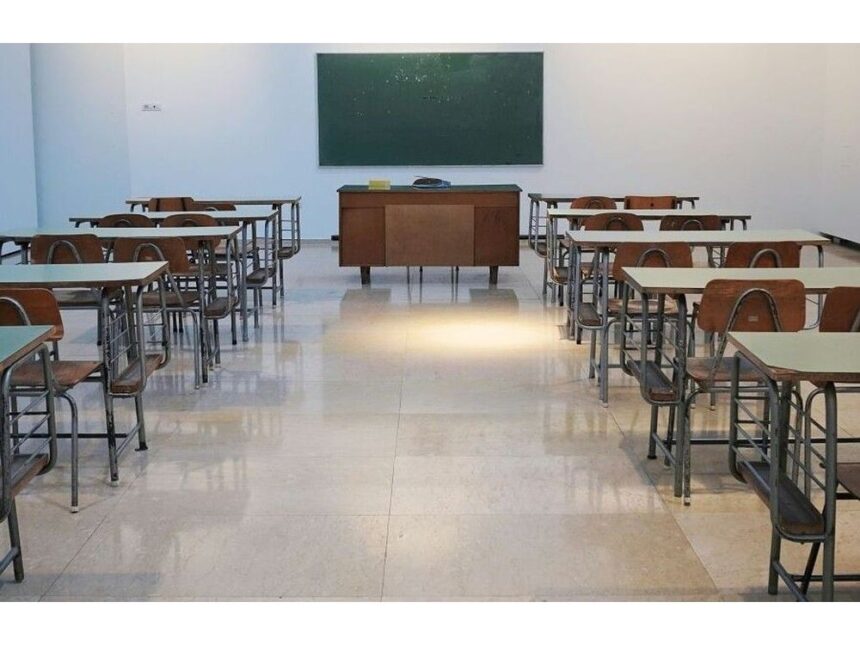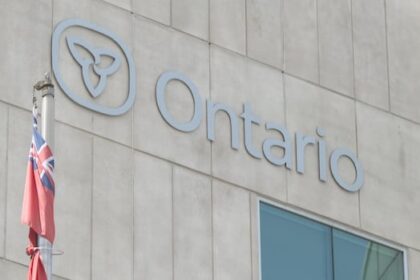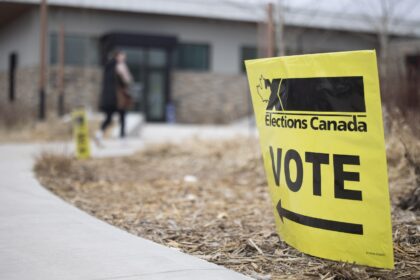Author of the article: Grant Frost • For The Chronicle HeraldPublished May 03, 2025 • Last updated 3 hours ago • 5 minute readIt is not a large leap to connect Donald Trump’s rise to power to the intentional dismantling of his country’s public education system by those who see opportunities for profit, writes Grant Frost. Photo by Unsplash /FileIf you are a parent of a Nova Scotia Grade 10 student, you may have recently had your child arrive home with an odd little envelope. In it you would have found information indicating that your child has been one of the lucky few to be selected to write this year’s iteration of the PISA test.PISA stands for the Programme for International Student Assessment, and its test, which is written globally on a three-year cycle, purports to offer a benchmark of comparison among international educational systems.THIS CONTENT IS RESERVED FOR SUBSCRIBERS ONLY.Subscribe now to access this story and more:Unlimited access to the website and appExclusive access to premium content, newsletters and podcastsFull access to the e-Edition app, an electronic replica of the print edition that you can share, download and comment onEnjoy insights and behind-the-scenes analysis from our award-winning journalistsSupport local journalists and the next generation of journalistsSUBSCRIBE TO UNLOCK MORE ARTICLES.Subscribe or sign in to your account to continue your reading experience.Unlimited access to the website and appExclusive access to premium content, newsletters and podcastsFull access to the e-Edition app, an electronic replica of the print edition that you can share, download and comment onEnjoy insights and behind-the-scenes analysis from our award-winning journalistsSupport local journalists and the next generation of journalistsRegister to unlock more articles.Create an account or sign in to continue your reading experience.Access additional stories every monthShare your thoughts and join the conversation in our commenting communityGet email updates from your favourite authorsSign In or Create an AccountorArticle contentSimilarly aged students from upwards of 80 countries sit for this test, administered by the Organization for Economic Co-operation and Development. The results are aggregated in order to compare data sets, and countries are ranked from “best” to “worst” according to the scores.For what it’s worth, Canada has placed in the top 10 fairly consistently since the test’s inception in 2000.I say “for what it’s worth” specifically. When commenting on the 2022 results, the American National Education Authority stated quite confidently that “there are no statistically significant relationships between indicators associated with the innovation economy, GDP, adjusted gross income, or purchasing power and PISA.”The tests are, quite simply, hogwash.In order to understand that summary, one has to understand the context of PISA and its inception. In the late 1990s and early 2000s, the world was being swept up in a wave of neo-liberal ideology that argued that applying the rules of free-market economics to systems like education would result in improvements and innovation. Since countries were competing against each other in a global marketplace, it made neo-liberal sense that the quality of education offered in those countries would affect that competitiveness.Article contentThe theory was further refined to suggest that if you created a method through which schools could be compared, then parents, much like consumers, could shop around for the “best” school for their kids. Good schools would draw more students and thus receive more funding for innovation and advancement that could be replicated. Poor schools would be forced to up their educational game, or, like a business, close due to a lack of customers.It was in this environment that education underwent a major transformation toward standardized testing. Regionally, we had an organization called the Atlantic Provinces Education Foundation set about creating our own version of the PISA test, remnants of which remain as part of our provincial assessment program.PISA itself, however, ruled supreme, and as test after test was written, countries scrambled to improve their standing. If you have ever come to understand that Finland has an exceptional education system, it is because of their surprising top-place results in early PISA testing. Their system was widely held up as an exemplar of excellence, and a book written by Finnish educator Pasi Sahlberg on why their system was so successful became a bestseller.Article contentIf one followed the premise upon which these standardized testing regimes were based, one would assume that other systems would have adopted the Finnish approach to educational excellence, which included a conspicuous lack of market-based ideology. The Finns did not use standardized tests, did not compare schools and seemed rather ambivalent to their exceptional ranking.What happened was the exact opposite. Instead of abandoning standardized tests as a pointless endeavour, some countries doubled down on them. This was particularly true in the United States, where federal authorities began to aggressively connect school funding to test scores.Not only were schools that did well on standardized tests rewarded with more money, individual principals and teachers, in some cases, were also compensated for good student results. Conversely, there were examples of schools being closed and individual educators being fired for not “raising the bar.”Article contentThe resulting chaos not only created an opportunity for results to be artificially inflated, it opened the doors for educational entrepreneurs. Organizations and companies promising they could do a better job than the public system were empowered to open their own schools to compete with publicly funded schools. These “charter schools” worked very hard to woo students away from the public system, offering everything from smaller class sizes to free laptops to individualized attention. The per-student funding that was supposed to go into the local public school was redirected to the private sector charter.To say that the past four decades of applying market-based ideologies to the American educational environment has been an unmitigated disaster is an understatement. It is not a large leap to connect Donald Trump’s rise to power to the intentional dismantling of his country’s public education system by those who see opportunities for profit within schools. Indeed, there is some irony that one of America’s most widely used standardized tests, the National Assessment of Education Progress, is on Trump’s chopping block, presumptively due to its 2024 results.Article contentThis is really where the rubber hits the roads. Tests like PISA and the NEAP can easily be weaponized by those who would dismantle our public system. We saw that in 2018 when the McNeil Liberals hired Avis Glaze to “modernize” our school system. Glaze indicated that a key reason that report was needed was to improve our students’ results in tests just like these. Almost a decade later, I’m not sure how many would agree that those efforts, for all the turmoil and trauma they caused, have had a substantive positive impact on our schools.And that gets me to the point. We have ample evidence of standardized tests being used to dismantle government agencies, defund public schools, dismiss otherwise exemplary educators and, as with Stephen McNeil, abolish school boards and attack collective bargaining rights.Where, precisely, is the upside?This year’s PISA cycle will be wrapped up by the end of May, and, if the OECD stays true to its usual practice, results will be out before year’s end. I am predicting that Nova Scotia will land somewhere in the middle of the pack, since that is where we have been since 2000.However, if the current debacle unfolding south of the border should teach us anything, it’s that modeling our vision of public education on what Americans have done can only have one result.It’s time to abandon our 1990s-based obsession with standardized testing and competition between schools and develop a truly Canadian vision of what public education means in this country.Grant Frost is a teacher of 30 years who has been writing about educational issues for more than a decade. More of his commentary can be found at frostededucation.com. Article content
GRANT FROST: Time for Canada to abandon American education ideology











